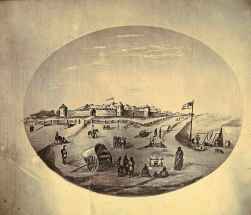Impact-fee loss just the latest city setback
Read this article for free:
or
Already have an account? Log in here »
To continue reading, please subscribe:
Monthly Digital Subscription
$0 for the first 4 weeks*
- Enjoy unlimited reading on winnipegfreepress.com
- Read the E-Edition, our digital replica newspaper
- Access News Break, our award-winning app
- Play interactive puzzles
*No charge for 4 weeks then price increases to the regular rate of $19.00 plus GST every four weeks. Offer available to new and qualified returning subscribers only. Cancel any time.
Monthly Digital Subscription
$4.75/week*
- Enjoy unlimited reading on winnipegfreepress.com
- Read the E-Edition, our digital replica newspaper
- Access News Break, our award-winning app
- Play interactive puzzles
*Billed as $19 plus GST every four weeks. Cancel any time.
To continue reading, please subscribe:
Add Free Press access to your Brandon Sun subscription for only an additional
$1 for the first 4 weeks*
*Your next subscription payment will increase by $1.00 and you will be charged $16.99 plus GST for four weeks. After four weeks, your payment will increase to $23.99 plus GST every four weeks.
Read unlimited articles for free today:
or
Already have an account? Log in here »
Hey there, time traveller!
This article was published 10/07/2020 (1977 days ago), so information in it may no longer be current.
Bad luck? Bad timing? Bad idea? Poor performance?
It’s always something, when things go wrong, but it’s seldom just one thing. Rather, most mistakes are the result of a confluence of flawed factors that turns a series of unfortunate events or choices into a big, embarrassing, regrettable bungle.
The current city council and the administration that supports it have of late found themselves in a seemingly ceaseless series of missteps and messes that have likely prompted many Winnipeggers to shake their heads, rub their eyes and wonder aloud, “WHAT in the HECK is going ON down THERE?”
This week, a humbling setback arrived in the form of a court ruling ordering the City of Winnipeg to pay back all monies accumulated by the controversial impact fee it imposed in May 2017 on developers and homebuilders in some new neighbourhoods. The decision, delivered by Justice James Edmond, rejected the manner in which the fee was imposed and the city’s assertion that the revenue it generated would ensure new development pays for the cost of civic infrastructure and services required in the aforementioned new neighbourhoods.
“I find that the impact fee imposed … is an invalild indirect tax, and therefore an unenforceable tax beyond the legislative authority granted to the city to collect,” Justice Edmond wrote. In excess of $32 million had been collected as of March 31; chief corporate services officer Michael Jack said Thursday the city is reviewing the decision to determine whether to file an appeal, and that any discussion of the process for refunding the fees will have to wait until all legal options have been concluded.
Despite Mayor Brian Bowman attempting to cast the decision in a positive light because it does confirm the city’s ability to charge some form of growth or impact fee within its charter, the prospect of having to repay $32-plus million (plus interest) is a stinging rebuke. Fortunately, the city has held the funds in reserve while awaiting the outcome of the court challenge.
And it’s far from the first such dressing-down for civic officials in recent history. In March, a provincial arbitrator ruled the city acted improperly when it moved unilaterally to alter the Winnipeg police pension plan. The price tag for the administrative overreach was more than $600,000 in penalties.
Last year, a Court of Queen’s Bench justice found the city in contempt for its handling of the long-controversial Parker Lands development. And in 2017, the city ran afoul of Charleswood residents over the appearance of a “rogue” option for the Sterling Lyon Parkway extension, which would have required expropriation of numerous properties.
On their own, each might reasonably be consigned to the “understandable error” category; when considered together, however, and added to a growing list of other assorted gaffes and miscues (missed lawsuit deadline, building-inspector videos, downtown parking confusion, turned-off fountains in retention ponds), it begins to suggest a pattern of behaviour that reflects rather poorly on city council and administration.
“I think we have got a problem that we have to face with the advice that we’re getting,” finance committee chair Scott Gillingham said this week. “This (impact-fee decision) is the… second or third major case in a row that the city has not won.”
There’s an oft-repeated bit of folk wisdom, attributed to a 19th-century French philosopher, that suggests people get the government they deserve. Winnipeg voters would surely disagree — regardless of how they cast their ballots in recent civic elections, they deserve much better than this from city hall.






